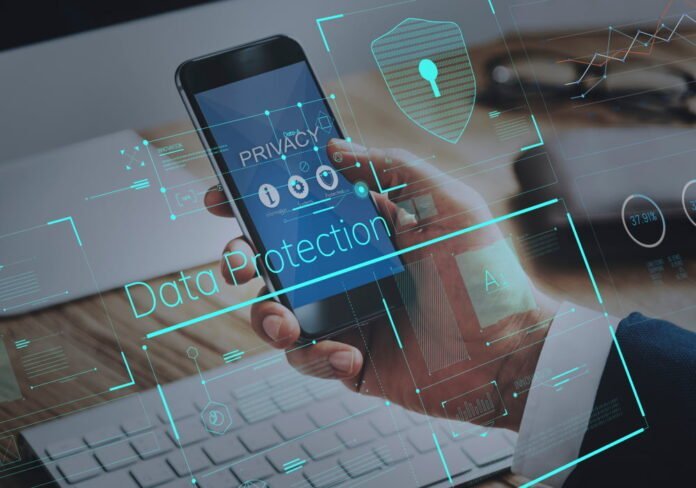Huge knowledge know-how has had lots of helpful adjustments lately. Nonetheless, it has additionally led to a wide range of considerations, reminiscent of fears about knowledge privateness.
Information privateness considerations have gotten extra important over time. Pew Analysis discovered that 71% of residents report worrying concerning the authorities gathering knowledge on them. That is a rise from 64% 4 years earlier.
Information safety impression assessments, in any other case often called DPIAs, are beginning to take the entrance stage within the improvement of knowledge privateness laws. They’re altering how companies deal with knowledge safety; they’re not merely a compliance train. These evaluations have a huge impact on the creation of privateness legal guidelines as they develop an increasing number of essential.
Nonetheless, what’s the exact explanation for this shift? DPIAs are a proactive strategy that assists in anticipating and lowering knowledge privateness considerations earlier than they turn out to be issues, not only a check-box train. Watch this house as this piece delves into the complicated interaction between these evaluations and the authorized framework meant to guard our non-public knowledge.
The Position of DPIAs In Shaping Information Privateness Laws
Legislators have taken notice of the integral position DPIAs play in safeguarding private data. Because of this, their affect is clear in rising knowledge privateness legal guidelines. Rules such because the GDPR mandate DPIAs for processes prone to end in a excessive threat to a person’s rights and freedoms. This has basically shifted how corporations strategy knowledge processing, resulting in a higher emphasis on accountability and transparency.
- Threat Identification: DPIAs assist in figuring out and mitigating dangers at an early stage.
- Compliance Demonstration: Finishing up a DPIA is a transparent strategy to exhibit compliance with knowledge safety legal guidelines.
- Shopper Belief: By committing to common DPIAs, corporations can present their dedication to defending person knowledge, thus enhancing client belief.
DPIA rules are being progressively included by policymakers into legislative frameworks to ensure a methodical and thorough examination of privateness points. Organizations that perform DPIAs are actively influencing the foundations that should regulate knowledge privateness somewhat than simply ticking a field for compliance.
As they supply regulators with data and requirements of excellence, organizations that assist the proactive use of DPIAs regularly have an effect on knowledge privateness legal guidelines. In a frequently altering digital world, this information sharing between legislative and business entities ensures that knowledge privateness guidelines stay relevant and environment friendly.
Academic initiatives and assets aimed toward growing DPIA consciousness and competency are additionally on the rise. These applications are important as they empower companies with the required abilities to conduct thorough knowledge assessments, making certain DPIAs contribute meaningfully to legislative evolutions.
Implications for Companies and People
DPIAs have appreciable implications each for companies that course of private knowledge and for the people whose knowledge is being processed. For companies, DPIAs usually are not merely a authorized requirement however a strategic instrument that may mitigate threat, form inside knowledge processing practices, and construct public belief. Corporations that proactively have interaction in DPIAs can profit from early identification of privateness points, probably saving on prices related to knowledge breaches and non-compliance penalties.
By conducting these safety of knowledge assessments, corporations exhibit accountability and dedication to knowledge safety, which in the long term may end up in a aggressive benefit. Organizations want to grasp that DPIAs needs to be seen as a part of the enterprise course of, built-in from the design stage of any new mission involving private knowledge.
For people, DPIAs serve a important perform within the safety of their rights and freedoms of private knowledge. They be sure that knowledge topics have a say in how their data is used and what measures are taken to safeguard it. By influencing laws, DPIAs contribute to making a authorized setting that places the person’s privateness on the forefront.
When a DPIA ends in steps that enhance openness and provides people management over private data, all stakeholders—from legislators to these affected by knowledge assortment and evaluation—profit. DPIAs’ proactive strategy empowers folks by making certain that their knowledge is managed anticipatorily regarding any risks and isn’t solely depending on reactive measures after a knowledge occasion.
Conclusion
DPIAs stand as a cornerstone within the evolving panorama of knowledge privateness, bridging the hole between authorized compliance and moral duty. They’re not solely a safeguard for private knowledge but additionally a strategic software for companies to navigate the complexities of knowledge safety legal guidelines. As privateness considerations develop within the digital period, the importance of DPIAs in shaping laws turns into more and more evident.
They be sure that each particular person rights and company pursuits are aligned with the excessive requirements of knowledge privateness that society calls for. By DPIAs, companies and lawmakers alike are higher geared up to deal with the challenges and obligations of knowledge stewardship within the twenty first century.

